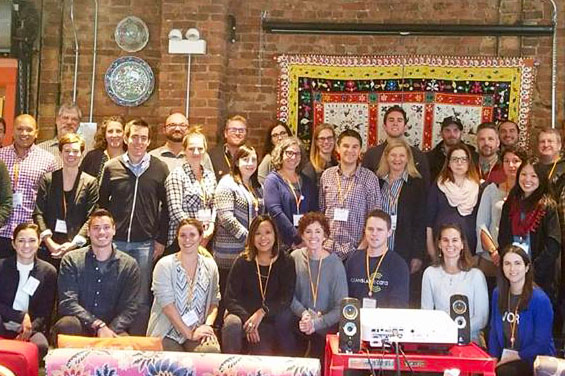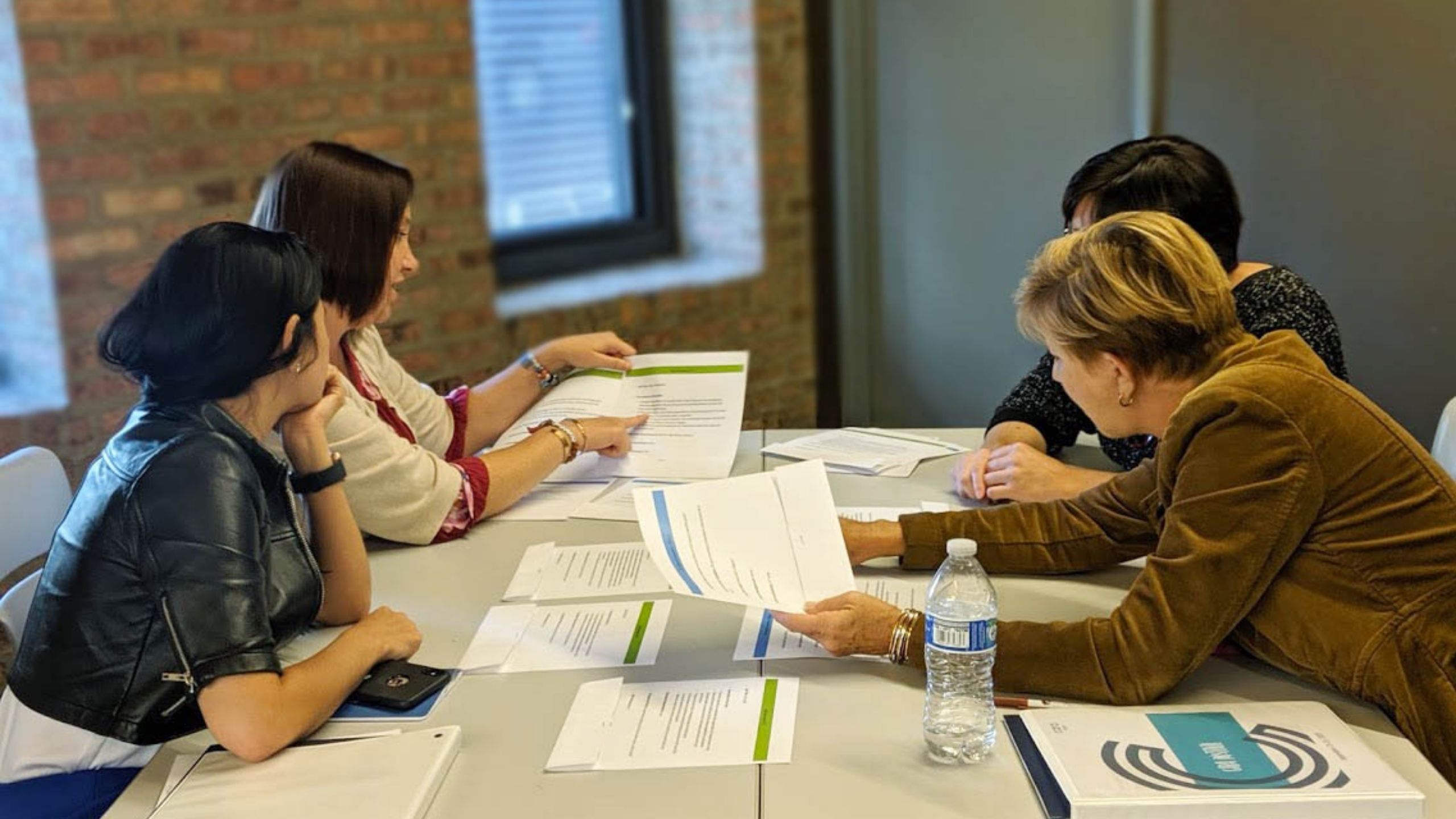From Hangry to Activated in 72 Hours

Corralling 75-ish social entrepreneurs is no small feat. They’re chatty, they’re connectors, and, with the right dose of caffeine, they’re insatiably curious and are always on the hustle for smarter, more creative ways to go after social solutions that stick.
On the opening session of a three-day REDF portfolio retreat, our facilitator from Smallify faced this challenge head on. He got us on our feet pretty quickly and invited us into a circle to help frame our thoughts for the day. “I want you to quickly introduce yourself to the group and share one word that defines where you’re at in this specific moment,” he said.
“Maria. Hangry,” I said in response.
Hangry (adj) an unfortunate combination of hungry and angry, or the mood we can settle in when our mind is stretched but our belly is not yet full.
I got my snack on soon enough to mitigate this issue, but most importantly over the next three days, I snacked on the power of ideas. Ideas like:
• How we at Cara can become a more inclusive employer – in our recruitment, engagement, training, and retention of talent inside our organization
• How language is powerful and can unintentionally make people feel not welcome in our organizations
• How unconscious bias is so named because it’s (obvi) unconscious – and how we can actively combat that by having a commonly shared rubric for how we evaluate any candidate before the interview process begins
• How we can stay focused on the power of a growth – not a fixed – mindset and remember our brains are wired for development based on new experiences, inputs, and insights over time
• How the notion of radical candor (caring deeply and challenging directly) can be transformative to a culture that prides itself on operational excellence but sometimes can struggle with giving and receiving critical feedback
• How our executive skills – or our abilities to get things done, organize and plan, and determine how to react to various stimuli – are so critical to our capacity to set and achieve goals; and how poverty, stress, and trauma all have the potential to degrade these skills
• How the individuals we serve should be treated in the same way as we treat our traditional “executives” (summary-level content, highlight-reel communication) because in truth, they are juggling far more outside their job than many of us can fully imagine
I walked away from these three days as I often do – stimulated to do more, be more, serve more. I walked away inspired by the leadership in the social enterprise sector across this country in how they are not just operationalizing best practices in this work, but paving the road.
At the end of our three days together, we got up from our chairs a little more nimble having been in practice in this space for some time, and repeated the same activity that defined our kick off.
“Maria. Activated,” I said.
Activated to take what we’ve learned and flip them into intentional actions to make Cara a stronger employer and to make our learning environment a stronger platform for the many individuals we have the honor to serve. Let’s get to work!
Maria Kim is the President and CEO of Cara. She holds an MBA from the Booth School of Business and serves on the boards of the EPIC Academy and Rebuilding Exchange. She fancies herself an expert solver of crimes due to her excessive consumption of “Law and Order” reruns.


